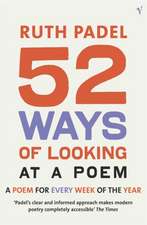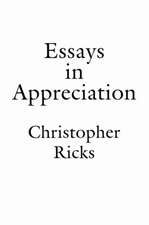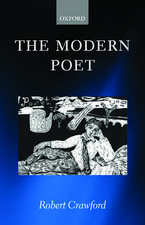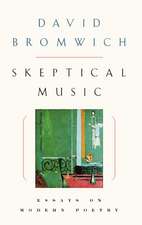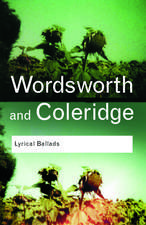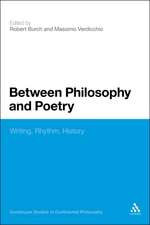Wordsworth and the Figurings of the Real
Autor David Simpsonen Limba Engleză Hardback – 24 mar 1982
| Toate formatele și edițiile | Preț | Express |
|---|---|---|
| Paperback (1) | 635.15 lei 6-8 săpt. | |
| Palgrave Macmillan UK – 1982 | 635.15 lei 6-8 săpt. | |
| Hardback (1) | 640.37 lei 6-8 săpt. | |
| Palgrave Macmillan UK – 24 mar 1982 | 640.37 lei 6-8 săpt. |
Preț: 640.37 lei
Preț vechi: 753.39 lei
-15% Nou
Puncte Express: 961
Preț estimativ în valută:
122.59€ • 127.91$ • 102.76£
122.59€ • 127.91$ • 102.76£
Carte tipărită la comandă
Livrare economică 12-26 martie
Preluare comenzi: 021 569.72.76
Specificații
ISBN-13: 9780333306314
ISBN-10: 0333306317
Pagini: 183
Ilustrații: XXVII, 183 p.
Dimensiuni: 140 x 216 x 21 mm
Greutate: 0.42 kg
Ediția:1982
Editura: Palgrave Macmillan UK
Colecția Palgrave Macmillan
Locul publicării:London, United Kingdom
ISBN-10: 0333306317
Pagini: 183
Ilustrații: XXVII, 183 p.
Dimensiuni: 140 x 216 x 21 mm
Greutate: 0.42 kg
Ediția:1982
Editura: Palgrave Macmillan UK
Colecția Palgrave Macmillan
Locul publicării:London, United Kingdom
Cuprins
Abbreviations Acknowledgements Introduction COMPANIONABLE FORMS Coleridge: The Brother Poet Wordsworth: The Namer of Places Cambridge and London: Places Already Named The Spots of Time: Spaces for Regiguring THE FIGURES OF DESIRE Seeing the Figure Figuring by Desire: Fichte, Hegel, Schopenhauer Metaphor and Symbol in Aesthetics SOCIETIES OF FIGURES The Many and the One Economies of Mind Notes Bibliography Index
Notă biografică
DAVID SIMPSON is Professor of English, University of California, Davis. He obtained his first degree at Magdalene College, Cambridge, and was awarded an MA at the University of Michigan before he took up the position of Lecturer in English and Fellow of King's College, Cambridge. He is author of Irony and Authority in Romantic Poetry.


